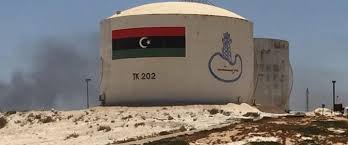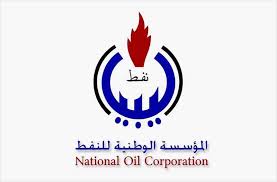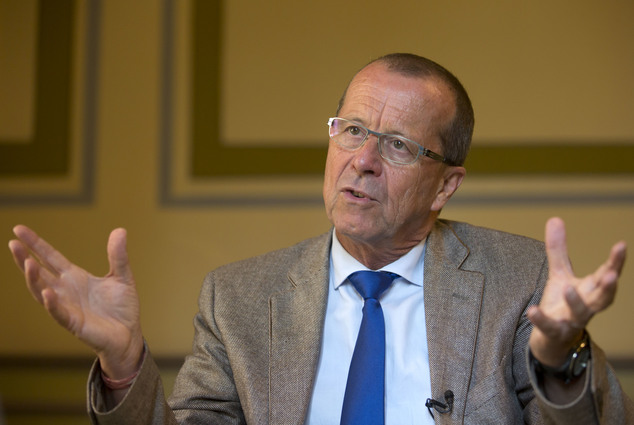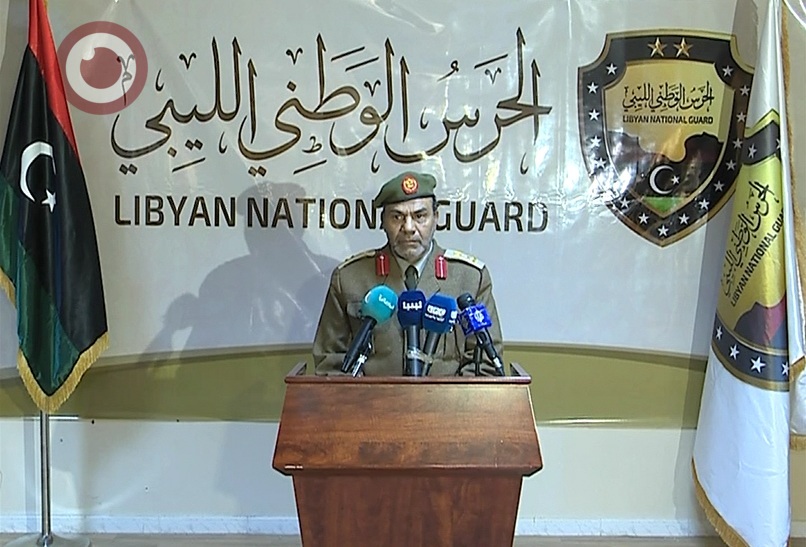 Libyan warlord Khalifa Haftar on Friday announced lifting the blockade on oil production and its export.
Libyan warlord Khalifa Haftar on Friday announced lifting the blockade on oil production and its export.
Hours after the Libyan National Oil Corporation (NOC), in a statement, objected to “the politicization of the oil sector and its use as a bargaining chip for political gains,” Haftar announced in a televised speech the lifting of the blockade on oil production and its export.
“It has been decided to resume production and export of oil with all the necessary conditions and procedural measures that guarantee a fair distribution of its financial revenues,” he said, stressing the need for guarantees that these revenues are “not used to support terrorism.”
Foreign militia and groups loyal to Haftar — backed by Russia and the UAE — have closed Libyan oil fields and facilities since Jan. 17. The blockade entailed, according to the NOC’s latest figures, losses amounting to some $9.8 billion, and exacerbated electricity and fuel shortages in the country.
In his short speech, khalifa Haftar said that “the command” of his forces “puts aside all military and political considerations” to respond to the “suffering” of Libyans and the deterioration of living conditions in this country which nevertheless has the most abundant oil reserves in Africa.
Actually, Libya has an oil production capacity of 1.22 million barrels per day. However, due to the internal conflict, the volume dropped to less than 90,000 barrels currently.
In a rare protest movement in the east of the country, hundreds of Libyans demonstrated last week in Benghazi, one of Marshal Haftar’s strongholds, and in other cities, against corruption, long cuts in electricity and gasoline, and liquidity shortages.
Since the fall of Muammar Gaddafi’s regime in 2011, Libya has been plunged into political chaos and two authorities have been vying for power: the internationally recognized GNA, based in Tripoli, and a power embodied by Khalifa Haftar, who reigns over the East and part of the South.
Diplomatic efforts have been underway in recent weeks to reach a solution to the Libyan conflict and the two rival sides have been engaged in peace talks since the beginning of this year following Berlin international summit on Libya.
Earlier this month, they held talks in Switzerland during which they agreed to hold elections within 18 months and restructure the government. Last week, delegations of the Libyan High Council of State and of the Tobruk Parliament held meetings in Morocco that were crowned by the adoption of a comprehensive agreement on sovereignty posts.
The two delegations agreed to further their dialogue at meetings during the last week of this month in order to complete the necessary measures to ensure the enforcement of the Bouznika agreement, before negotiations in Geneva next month.
According to Bloomberg, the rival sides will be asked in Geneva to agree on a new presidential council structure that unifies the country’s dueling administrations and schedule elections.


